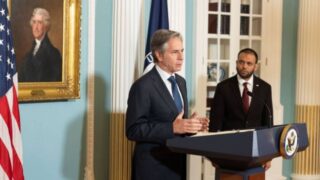Another legal round goes against the Native Americans. Without a Supreme Court or political intervention, the sacred site appears to be doomed.
by Massimo Introvigne


Bitter Winter publicized in 2021 the story of Oak Flat, in Arizona, called by the Apaches Chi’chil Bildagoteel, and regarded as one of their sacred sites. It is destined to disappear as a consequence of a land swap opening the way to one of the larger copper mines in the world, which will “swallow” Oak Flat.
Then President Obama and the Congress authorized in 2014 the deal, which will benefit Resolution Copper, a joint venture between mammoth multi-national companies BHP and Rio Tinto. The Apaches, however, claim that destroying a sacred religious site would violate their religious liberty.
On February 12, 2021 a federal District Court in Arizona ruled against the Apaches and allowed work to commence on March 6. The following month, however, the United States Department of Agriculture (USDA) withdrew its Final Environmental Impact Statement, which it had released on January 15, 2021, and which was crucial for authorizing the copper mine project to go on, pending the Apaches’ appeal.
Now, the 9th Circuit has decided on June 24, 2–1, that the project does not violate the Apaches’ freedom of religion. The majority stated that “the government imposes a substantial burden on religion,” prohibited by the Religious Freedom Restoration Act, “in two—and only two—circumstances.”
This happens when the government “force[s citizens] to choose between following the tenets of their religion and receiving a governmental benefit,” and when the government “coerce[s citizens] to act contrary to their religious beliefs by the threat of civil or criminal sanctions.” In this case the government did not impose any specific behavior on the Apaches, the judges argued, and losing their place of worship is just a side effect of a decision taken on other grounds.


Judge Marsha Berzon dissented, finding that, “The majority applies an overly restrictive test for identifying a ‘substantial burden’ on religious exercise under the Religious Freedom Restoration Act…. The majority’s flawed test leads to an absurd result: blocking Apaches’ access to and eventually destroying a sacred site where they have performed religious ceremonies for centuries does not substantially burden their religious exercise. The majority offers both a doctrinal and a practical basis for its unduly narrow definition of ‘substantial burden.’ Both are incorrect.”
The Apaches may now take their case to the Supreme Court. How politics will react will also be interesting. The climate in the United States favors extensive definitions of religious liberty. But is this true even when religious liberty is asserted to stop an economic project worth billions?









